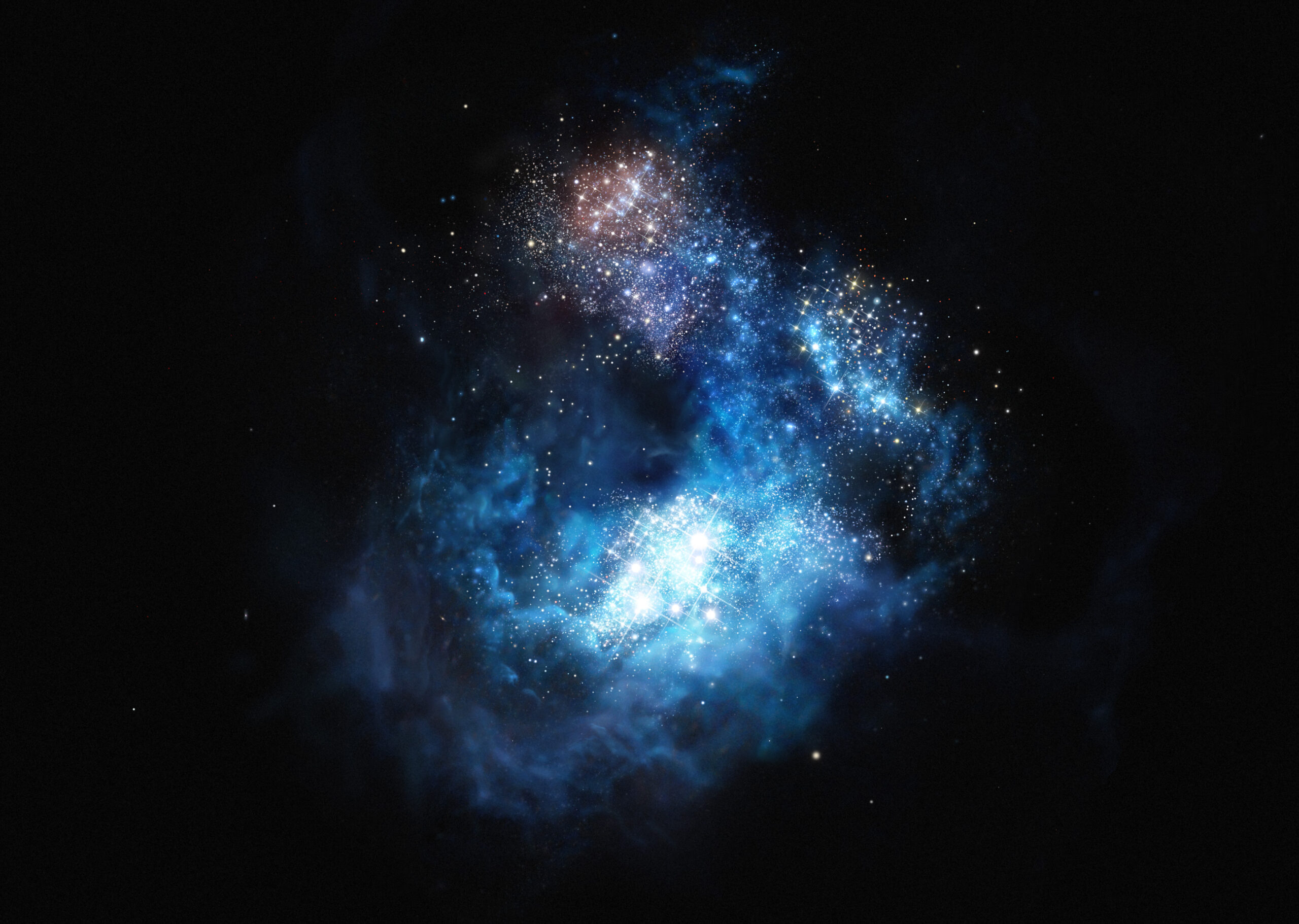FCT researcher leads discovery of the first stars in the Universe

An international team led by astrophysicist David Sobral has discovered the brightest early-universe galaxy ever found, and has shown that this galaxy appears to contain examples of the first generation of stars being formed. These discoveries confirm the long-standing theoretical prediction of the existence of these first-generation stars, which are said to have formed from the primordial material of the Big Bang. These huge, bright objects would have created the first elements needed to form stars like the Sun, planets, and Life as we know it today.
The first stars must have formed from elements that are known to have existed before stars existed: hydrogen, helium, and trace amounts of lithium. They would have been huge (several hundred or even thousands of times more massive than the Sun), extremely hot and transient, with a lifetime of only a few million years. No international search for physical evidence of their existence has been successful. So far.
The team decided to take a different path from other researchers by mapping large areas of sky, rather than focusing on a limited, in-depth study of a small area. They used the European Southern Observatory's (ESO) Very Large Telescope (VLT), the W. M. Keck Observatory and Subaru Telescope, and NASA/ESA's special Hubble telescope to observe the primordial universe, about 800 million years after the the Big Bang.
David Sobral, who is also a researcher at Leiden University, explains, "We knew that the risk of looking where nobody looks was easily outweighed by unexpected discoveries (...) It was fantastic when we discovered the CR7 galaxy, the brightest galaxy ever found in the early Universe." And the discoveries went further, "As we put the different pieces of the puzzle together, we realized that we had found something much deeper and that we were seeing, for the first time, a holy grail of astronomy - the first stars."
The Portuguese astrophysicist is extremely proud of the work of his team, and of the support from FCT, "It was only possible to make this discovery (and many others) in Portugal due to the FCT Investigator Program, which I believe has the potential to contribute so that the country and the Universities really take advantage of FCT support (at the level of the best funding agencies in the world). Without the Studentship that I was given by FCT in 2007 to do my PhD in Edinburgh, it would be impossible for me to be today coordinating my own team and competing with the best in the world. I also highlight the importance of Portugal being part of the ESO (and the ESA, for access to the Hubble Space Telescope) - without that it would be impossible to get all the time we got for discovery."
The results of the team (which includes researchers from Leiden University, the University of California and the University of Geneva) will be presented in the renowned Astrophysical Journal. They have been included by the ESO in the Top 10 astronomical discoveries made using the ESO telescopes.
Portugal at the ESO - 15 years
This year marks the 15th anniversary of Portugal's membership in the ESO. Being one of the 16 member states of the "world's largest terrestrial astronomical observatory" is recognized by researchers, funding agencies and the government as central to building and sustaining the small but highly productive space science community in the country. In the public event organized by FCT on the occasion of the anniversary, Tim de Zeeuw, Director General of the ESO, welcomed the good participation of Portugal in the ESO, in terms of good use made of the telescopes' observation time (through competitive Calls ), the increasing contribution to instrumentation and greater involvement of national companies in ESO projects.
Paulo Garcia, Portugal's delegate to the ESO Council, reinforced these successes, reminding everyone that Portugal has a "winning agreement" with the ESO. The high scientific impact index of the space sciences area and the capacity demonstrated by the research units in the area to attract European funds (71% compared to 35% for other units funded by FCT), demonstrate the positive return on Portugal's 1% contribution to the ESO global budget.